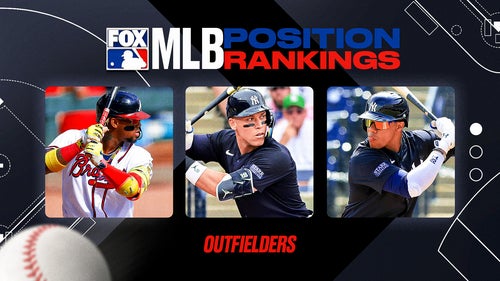
Yankees snipe at Mets in revenue-sharing gripe

Baseball’s collective-bargaining negotiations again have the potential to pit not only owners against players, but owners against owners.
One example: The Yankees are upset about the money they are paying in revenue sharing compared to their cross-town rival Mets.
“What is very burdensome to us -- and is unfair -- is the amount of money we have to pay in revenue sharing compared, for example, to teams in our market that pay 10 times less than us,” Yankees president Randy Levine told FOX Sports.
“Hopefully that is something that will get looked at in the next labor agreement.”
Commissioner Rob Manfred said he already has spoken to teams at length about the next revenue-sharing plan, and anticipates no issues from the Mets and Yankees.
“We’ve had extensive internal conversations,” Manfred said. “I expect both the Mets and Yankees to be fully supportive of the revenue-sharing proposals we put on the table.”
Jeff Wilpon, the Mets’ chief operating officer, declined comment when informed of Levine’s remarks.
Levine said the Yankees will continue to support baseball’s plan to redistribute income and is working with Manfred, “in what thus far has been a very transparent process.”
However, the Yankees clearly want the system to change.
Levine said the Yankees paid approximately $90 million in revenue sharing for the 2015 season. They also paid a reported $26 million in luxury tax, which applies to teams that exceed a certain payroll threshold.

Revenue-sharing payments are calculated from a different formula, based upon each team’s net local revenue. The Yankees, Red Sox, Cubs, Giants and Phillies contributed $1.15 billion during the first four years of the current collective-bargaining agreement, according to Forbes Magazine, with the Yankees and Red Sox paying a combined 61 percent of that total.
The contributions of the Dodgers and Phillies figure to rise in conjunction with their new local TV agreements; the Dodgers’ contract began in 2014, the Phillies’ deal begins this season.
The Mets’ average home attendance rose from 26,680 in 2014 to 31,725 in ’15, and the amount they pay in revenue sharing this season will reflect the increase in income.
The Yankees generated the most revenue in the majors in 2015 -- $516 million after revenue sharing, according to Forbes. The Mets’ revenue was $313 million.
The CBA expires on Dec. 1; a new revenue-sharing plan, subject to the union’s approval, will be part of any new deal. The players and owners have held preliminary bargaining sessions, according to major-league sources, seeking to extend the unprecedented labor peace that the sport has enjoyed since 1994.
Levine’s comment on revenue sharing followed his response to a question about the Yankees’ home attendance, which has declined every year since 2010 with the exception of ‘14, Derek Jeter’s final season.
The Yankees’ average attendance of 39,430 marked the first time they were below 40,000 since 2000, but still ranked fourth in the majors and first in the American League.
The team remains the sport’s most valuable franchise, according to Forbes -- they are worth $3.4 billion, an increase of 6 percent from last year.
“The Yankee business is strong -- very, very strong,” Levine said. “But we’re the Yankees. We can always do better. We always look to do better.
“Our attendance projections are up. All of our other revenue -- sponsorship, food and beverage – everything else is up. We expect to have a great team this year. I think it’s going to be a good year.”
The CBA negotiations, though, are about the future.
Some high-revenue teams have raised concerns not only about how much they contribute to revenue sharing, but also about how the recipients use the money.
The CBA states, “Each club shall use its revenue-sharing receipts in an effort to improve its performance on the field.”
The agreement explicitly prohibits teams from using revenue-sharing money to pay down debt unrelated to baseball operations, making payments to individuals outside of baseball operations and distributing money to ownership partners for the partners’ personal use.
Another concern of high-revenue teams is that the money acts as a disincentive for low-revenue clubs to increase their own revenue -- in effect, becoming a permanent subsidy.
Under the revenue-sharing plan, each team contributes 34 percent of its net local revenue, and the pool then is divided equally among all clubs.
High-revenue clubs also contribute an additional percentage of net local revenue to a supplemental plan, based upon a formula known as a “performance factor.”










